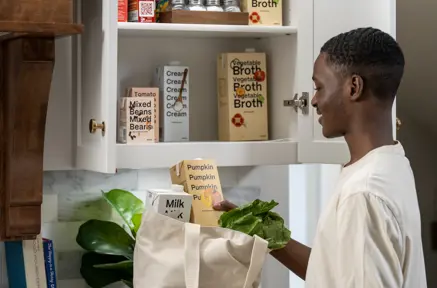What lies behind shelf-stable success?

The rise of packaged food has been underlined by societal shifts over the last century, as we explored in our earlier Food speak series. And the trend continues with consumers getting busier, families smaller, and improvement in technology that makes packaged food more viable for everyday use.
So, what are the challenges that we as consumers face, which in turn are top drivers for the packaged food industry?
The taste test
Taste is the most important driver of brand equity in food and beverage. It continues to be the primary reason that people buy a product. This is where shelf-stable packaged food scores big with the ability to provide consistent, high-quality taste across a variety of products and occasions. They also make global ingredients more accessible and with aseptic technology as an enabler, flavors remain intact for extended periods.

The convenience factor
Convenience is one of the main reasons that packaged food rose to fame in the first place and continues to be a top driver. Single-serve portions, microwavable packaging, and long shelf lives make the products ideal for busy schedules. Shelf-stable ingredients and pre-made products also help cut down the time and effort required in everyday cooking, making packaged food an indispensable part of modern life. With food and beverage manufacturers getting more creative with their recipes and ingredients keeping in mind both taste and health, elevated convenience is among the top consumption trends of 2024.
Nourishment without compromise
This is a key ask from consumers and has been perceived as a roadblock, rather than a driver. But that is fast changing with clear communication from manufacturers enabling consumers to make informed decisions. Trust the process, a top Mintel trend for 2024 highlights a growing interest in minimally processed foods. And brands can tap into this by highlighting how aseptic technology helps preserve food value. Shelf-stable foods also play a role in popularizing plant-based diets, and we will delve into that next in the series.
An affordable option
Affordability is another crucial factor influencing purchasing decision alongside taste, health, and convenience. Shelf-stable aseptic foods often prove to be cost-effective options, as they eliminate the need for constant refrigeration, reducing energy consumption and waste. Packaged foods also can meet varied price points with variety in sizing options, giving consumers the flexibility to manage their budgets better.

The packaging angle
The right packaging is vital in enabling all the drivers mentioned here. It also addresses another concern in packaged food purchase decisions: sustainability. With our commitment to sustainability, innovation in material sciences, and expertise in packaging food across formats, from bag-in box and spouted pouches to cartons, we, at SIG, are uniquely positioned to help food and beverage manufacturers differentiate their products. Reach out to discover the possibilities.

Innovation and partnership to improve global food access

Unpacking the food and beverage industry

